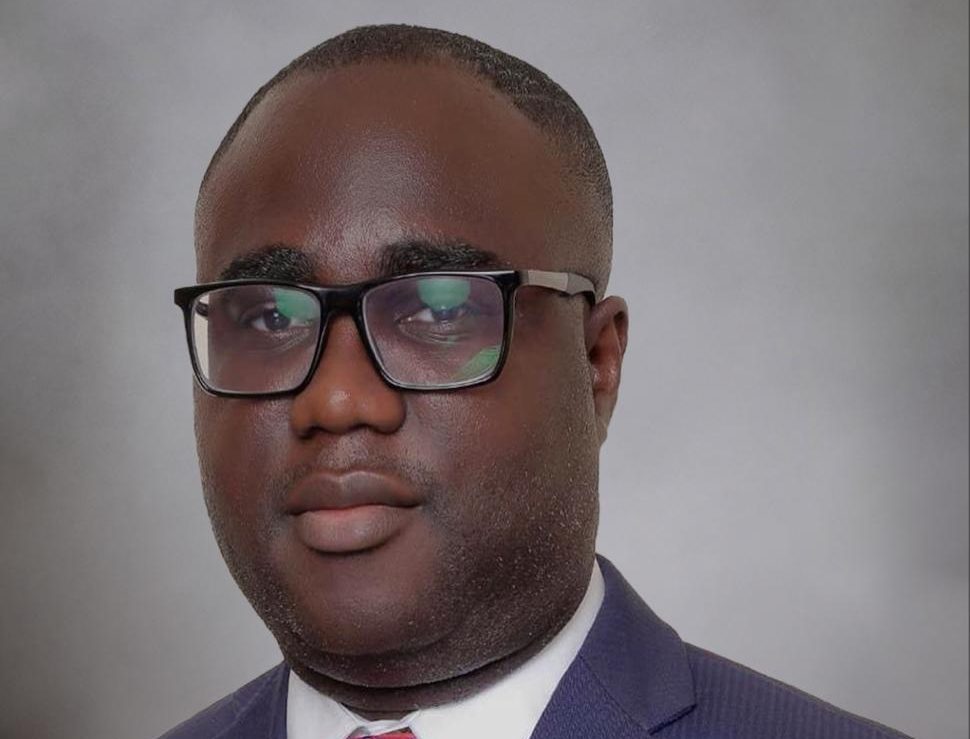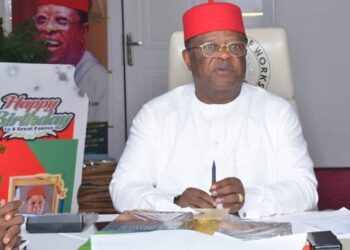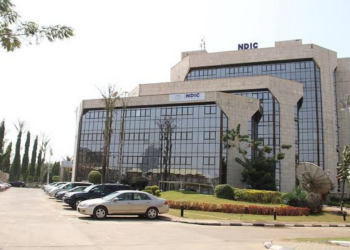The availability of public power supply continues to pose challenges on different fronts in Nigeria. For many decades, successive administrations have made “concerted efforts” to tackle the many challenges that have plagued the sector.
However, it appears every solution proffered has thus far failed at almost the first hurdle. The unbundling of the erstwhile Power Holding Company of Nigeria and the substantial privatization of the power sector have still missed the mark in reviving the sector and finally providing a lasting solution to the many challenges that plague the sector.
Some of the economic challenges being faced in Nigeria continue to be attributed to, inter alia, the shortcomings of the power sector – especially the generation and distribution of electricity. Hence, although there has been some noticeable improvement, which is unarguably not far-reaching, there continue to be divergent views on what might be, if any, a silver bullet to turning things around – for good, in the sector.
The Conversation
Recently, social media and the press generally have been awash with the news that the President had signed a Constitutional amendment, allowing states (component Nigerian States like Lagos, Ogun, Edo, as opposed to Nigeria, as a State) to make laws relating to the generation, transmission, and distribution of electricity in areas covered by Nigeria’s national grid.
Specifically, law-making relating to electricity generation, transmission, and distribution has been a matter under the concurrent legislative list such that both the federal government and individual states could make laws. What the Constitution, however, did was specify the extent of the law-making power of each level of government.
From the outset, it is pertinent to distinguish this constitutional amendment from the rights/powers of the states to take part in the Nigerian electricity market as participants. Such powers/rights were never in dispute, as all that was required by states (especially when it came to distribution and generation) was licensing by the Nigerian Electricity Regulatory Commission (“NERC”).
The debate had also been around the Constitutional provision that the states are permitted to make laws with respect to the generation, distribution, and transmission of electricity in areas not covered by a national grid system within the relevant state. The phrase “areas not covered by a national grid system” was not defined or described in the Constitution. Hence, the same has been controversial.
Although the logical conclusion, which some experts initially disagreed with, is that states could always make laws relating to distribution, in the strict sense, provided it is not with respect to the participation of Nigeria in any arrangement with another country for the distribution of electricity for any area partly within and partly outside Nigeria.
Interestingly, as I noted above, no state appears to be exploring its powers to make laws in connection with local distribution within its territory. Rather, many commentators, experts, and lawyers have been hung on the aspects around the powers of the states to make laws with respect to the generation, transmission, and distribution in areas not covered by a national grid system.
A Constitutional Amendment – The Big Debate
The big debate is whether the constitutional amendment that now allows states to make laws in relation to the generation, transmission, and distribution of electricity in areas covered by the grid could be the silver bullet to the power sector woes of the Federal Republic of Nigeria. The corresponding question is whether states can now run and if so, successfully, electricity markets.
From the outset, I am of the firm belief that there are good arguments that this constitutional amendment will appear a step in the right direction. However, the devil is in the detail, and this could work provided that the same issues, which plagued the “electricity market” (some debate that we don’t have an electricity market – I am of the contrary view, that we do but is poorly run/structured since a market is only a medium for buying and selling electricity), as currently.
The Devil is in the Details
In fact, some people have stated that the move by both the National Assembly and the President was “music to their ears”. Is it, though? If so, is it great music or noise? It may be music in the ears of forward-looking states, particularly where the relevant authorities ensure that the problems that plagued the current market/system do not recur.
It is the case that electric power sector challenges are across the value chain, and everyone does have a role to play. If consumers steal electricity or simply refuse to pay for the same, it will not matter that the system has been decentralized, and states can legislate.
If there is regulatory capture of the relevant regulator too, then it wouldn’t matter that states can legislate more. Also, if the market indiscipline occasioned by some of the electricity distribution companies, in any state continues, then it wouldn’t matter that such a state can make its own laws.
Contracts with attendant security for payment and actual payment need to exist. You can have a poor market where people buy on credit and never pay, or sellers cannot account for what they sell-that’s still a market!
Prior to this debate and the constitutional amendment, there have been good moves by NERC to facilitate sub-franchising such that the electricity distribution companies can get third parties to perform some of their roles because of the sizes of their franchise areas-a form of decentralization.
NERC has led the charge to actually improve the market with the problem, at times being that of enforcement or the judiciary, not cooperating or understanding the sector well enough to make decisions in its (the power sector’s) best interest. Thus, things haven’t exactly panned out as planned (no pun intended). There have also been issues around the eligible customer regime, which appears to have now become nearly comatose.
As stated above, NERC has continued to issue very useful and forward-looking regulations. The problem in many cases has been implementation and the fact that the citizenry does not appear to support some of these efforts by not reporting electricity theft, stealing electricity, or simply failing to pay their bills. The judiciary too hasn’t been of much help. Like most other sectors in Nigeria, the problem is not the inadequacy of laws, but that of implementation or the will to implement them.
Before determining the Way Forward, Query is-What has been Done Elsewhere in Similar Situations?
Research has shown that countries with both federal and state powers to make laws on electricity generation, transmission, and distribution will typically establish clear guidelines and processes for sharing responsibility and decision-making. In many cases, the federal government sets minimum standards and regulations, while state governments have the ability to implement additional requirements or regulations that are tailored to their local needs.
Collaboration and communication are key to making this system work. Regular sessions and consultations between federal and state officials will usually help ensure that both levels of government are aware of each other’s priorities and concerns. Additionally, some countries have established independent agencies or commissions to help coordinate regulation and decision-making, such as the Federal Energy Regulatory Commission (FERC) in the United States of America.
There should also be proper adoption of legal mechanisms to resolve disputes or conflicts between federal and state law. In the United States of America, for example, the Supremacy Clause of the Constitution establishes that federal law trumps state law in cases of conflict. However, in Nigeria, the position is that where a state has enacted its law on a matter that falls within its remit, in the concurrent legislative list, the state law remains valid and will apply (whether or not it conflicts with the federal legislation).
In such cases of conflict, an option available is for the federal government to challenge the position of the state law in court and to seek relevant relief.
Ultimately, the success of a federal-state system for regulating electricity depends on the commitment of both levels of government to cooperate and work together towards common goals. The way forward requires a holistic approach and a coordinated effort between federal and state governments. It requires strong regulatory oversight, effective implementation of laws, and policies, as well as robust enforcement mechanisms to ensure compliance.
The decentralization of the power sector is an excellent opportunity for states to take ownership and control of their electricity markets. However, it requires a significant shift in mindset and a willingness to work together towards common goals.
Dive-Inon the Specifics-Of Generation& Transmission
Transmission is naturally an inter-state and inter-regional affair. Thus, clearly, it should lend itself to a federal regulator such as NERC, which already regulates the same. To move that to state legislation may be to invite chaos. There may be debates around regional grid systems, which would work just like distribution networks on a larger scale, and one could argue that where this is the case, states and federal legislatures may cooperate to legislate on these.
The question is whether states in Nigeria can engage in proper scheduling and market/system planning even with our challenges around basic issues such as water supply or even road traffic regulations. It is doubtful that any state (maybe one or two) is really ready for a wholesale electricity market or indeed regional grid systems. How will they, for example, deal with electricity theft that the current regulator (NERC) cannot via legislation and the sub-franchising already mentioned above?
Investments of huge dimensions will also be required, and with many states even struggling to bring power generation investments into them, means that having a regional grid or indeed a wholesale market could be a pipe dream. The wholesale electricity market is connected to the transmission grid. Hence, it may be more efficient, technically and otherwise, to continue to have the federal regulator (NERC) continue to regulate the same.
More Questions than Answers!
Would the powers of states to make laws give impetus to the implementation of such laws? Will politicians not abuse the process? Will the state regulator not be captured as claimed regarding NERC? Will residents of states stop stealing electricity and cooperate to ensure that electricity can be supplied efficiently? Will residents be able to afford the actual cost of electricity?
Will invisible hands preventing the success of the electric powers sector also prevent the success of states? Will it not be a situation of some states prospering and others failing? Can the federal government intervene at some point or be the supplier of last resort? How will investors navigate the land miles, which may be caused by overregulation, where you have both NERC and state regulators, or will the doctrine of covering the field apply?
These questions above and many more require practical answers for the steps being taken by Nigeria’s federal legislature to make the desired progress required for the power sector. It would be pertinent for the laws to address some of these issues and for the policymakers to determine the best ways to avoid the reoccurrence of the same issues that have plagued the sector since its inception and have prevented the sector from reaching its potential, despite the privatization of the electric power sector.
Issues such as grid collapses, which have become more incessant, need to be dealt with by the states. Technical studies suggest that there are several system collapses due to low frequency and uneven/lopsided supply of power to the national grid caused by a concentration of gas thermal plants in the southern part of Nigeria (especially the Niger Delta region) and low generation in the Northern part of the country. Consequently, amongst other steps, states will need to fashion grid systems and load allocation systems that will help prevent such occurrences within their geographical locations.
Additionally, states will also need to solve the electricity theft conundrum, amongst several other pertinent issues worth considering. There have been issues with the gas-to-power value chain, even in states that have been pushing for independent power generation, and solving that has been nearly impossible, with many plants ultimately becoming dual-fuelled using heavy fuels such as Low Pour Fuel Oils (LPFO) or even diesel as an alternative. Perhaps, the legislators may have missed an opportunity to look into mini-grids and proper collaboration between the Rural Electrification Agency and the states.
Of Distribution, the States & Opportunities for the Discerning Business Person
In terms of investments, there is an opportunity for more states to collaborate with private investors to improve certain areas of the electricity value chain. More precisely, this Constitutional Amendment can be a window for more investments in the distribution aspect of electricity supply and the creation of retailing separate from distribution, such that consumers have the choice of retailers similar to what is experienced in more advanced climes.
States can make laws that clearly delineate customers and allow interested entities to handle electricity retailing for selected areas with the distribution companies and their infrastructure only serving as a conduit with access to third-party retailers using their facilities for a fee. Of course, they need to substantially upgrade their facilities and take more power from generation companies directly via the embedded power route, which then means there is an opportunity for more generation companies to develop power projects in those states. Hence, when it comes to distribution and marketing/retailing (choices to the last mile), the same may be more easily regulated by states in cooperation with each other with some uniformity in certain standards.
With support from state governments, interested companies can also provide metering services to customers within the applicable state. Furthermore, local enforcement authorities can be set up to handle reports of electricity theft within the state, and opportunities for technology companies to invest in providing equipment/infrastructure to track electricity theft.
States can be creative such that there are investments by private sector participants in distribution infrastructure and equipment, such that there are marketers and franchisees of networks, and consumers can choose which franchisee or marketer they get electricity from, but there must be free access with distribution companies taking a distribution use of network tariff (“DUOS Tariffs”).
Each state can then determine the energy sources, especially as the world transitions from heavy dirty fuel to gas and renewables. Issues around DUOS Tariffs and other sorts of tariffs, authorizations, etc. will be determined by each state, and as suggested above, there may be areas of uniformity.
In all of the foregoing, the private sector can make investments with healthy returns where properly structured.
Energy Federalism and Other issues-Way Forward:
One interesting thing that the Constitutional amendment might do is it could allow for energy federalism, such that each state could encourage by legislation, incentives, and other state instruments, the use of the energy source best suited to it and benefit from comparative advantage too. Lagos could, for example, make do with small hydro and wind, amongst others.
Enugu may look to coal, clean coal technology could be an alternative, as the world appears to be realizing that decarbonization, for now, especially in regions such as Sub-Saharan Africa, is ambitious. The other states will also determine what best suits them to make engaging and/or investing in the electric power business more attractive to ensure that there is sufficient power supply, to create jobs and increase revenue from taxes, etc.
Energy federalism ensures each state/community uses/contributes the least-cost fuel to generating electricity in Nigeria. Mini-grids and renewables will also be important in the conversations, especially in parts of the country, where even state grid extension is not viable! There will continue to be a role for distributed generation, especially in rural areas and suburbs. Like every true federal system, states will not develop at the same pace, but there would be a common thread of minimum standards and levels of development, etc.
The federal government may step in upon request from any relevant state that needs its support. The states can also collaborate, and as the power markets develop across states, those states may begin to trade electricity among themselves, and in this case, the federal transmission system might have a useful role to play. Also, laws from states like Lagos can serve as blueprints for other states.
With respect to distribution generally and considering that most distribution companies straddle more than one State, it may be crucial for States and the federal government, via NERC, to collaborate, in the regulation of these electricity distribution companies and electricity distribution generally.
Final Words:
The Constitutional step taken to ensure that States can legislate on the various aspects (generation, transmission, and distribution – even retail issues) of the electricity market may be in the right direction. However, the ability to make far-reaching laws alone will not solve the problems in the sector.
It is expected that certain States will make a success of it where they can adequately address the problems that have plagued the sector until this time. Research, data-driven legislation, strong implementation, technology to curb electricity theft, and even native intelligence will be required to succeed.
Residents of States must cooperate and report breaches, and such residents who are reporting must be compensated through a workable system or policy with sufficient care given to protecting the identities of whistleblowers. States like Lagos, Edo, Rivers, Oyo, and Ondo are already taking the initiative.
There will also be the need for States to collaborate and maybe need to collaborate with the federal government, in some cases. Technical and commercial issues need to be holistically considered for the powers of each State to make laws to be effective and achieve the desired results in the power sector.
Without prejudice to the foregoing, I am, however, of the firm view that States should be more concerned about (and are more suited to) making policies to ensure the efficiency of marketing and distribution of electricity to the last mile, working with the federal regulator and the State rural electrification agencies and providing (to the extent viable) strong infrastructural backbone support.
Ayodele Oni (ayodele.oni@bloomfield-law.com), is a commercial and transactional lawyer, specializing in international energy investment and mining law.























